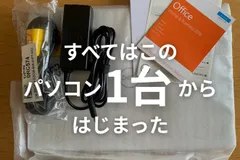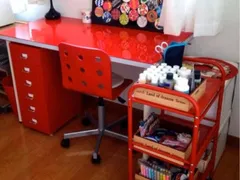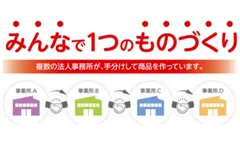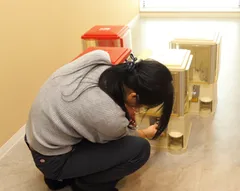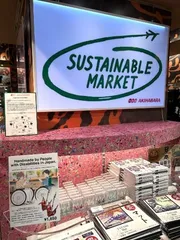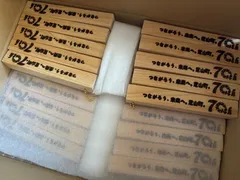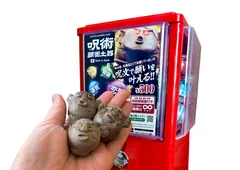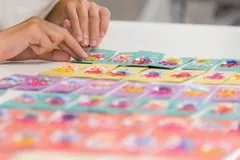Para-Business" built up from zero public funds and zero factory Five years of hard work from a 6 tatami mat room and 130,000 yen in funding Introduced fabless management to welfare for the handicapped, and reached 5 million yen in social return
一般社団法人障害者就労支援ネットワークP&P
P&P (Head Office: Kashiwa City, Chiba Prefecture / Representative Director: Yoko Okudake / hereinafter referred to as "P&P"), a general incorporated association, has introduced fabless management with "zero public funds and zero factories" to the welfare of people with disabilities, and over the past five years has returned a cumulative total of over 5 million yen in work expenses to people with disabilities. On the occasion of the 5th anniversary of the company's founding, we are disclosing the concrete results and initiatives of our sustainable "para-business" in this press release.
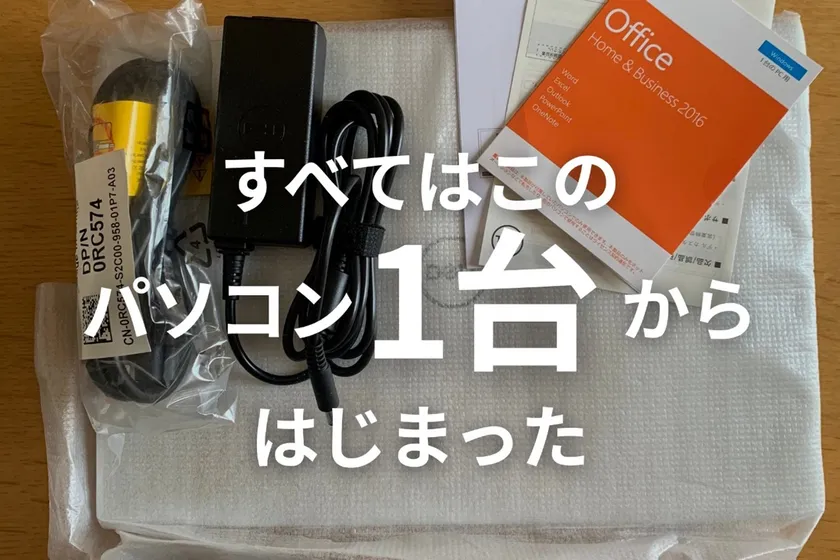
A manufacturing business that started with just one computer
■ Introduction
We are pleased to announce that our efforts have been introduced in several media outlets. We would like to express our sincere gratitude to all those who have shown interest in our efforts through these articles, as well as to the companies and organizations that have supported us both within and outside of Chiba Prefecture.
In this release, we would like to respond to the growing interest and reiterate the overall picture of our welfare business model, which does not rely on the system, and its social significance now that five years have passed since our founding.
We will share with you the history and prospects of "Para-Business," which has been nurtured through trust between the community and companies, and how it was born and how we aim to develop it in the future.
What is Para-Business?
We believe that if there are para-sports in which people with disabilities find fulfillment in sports, there should also be para-business in which people with disabilities find fulfillment in working, and we are advocating Japan's first "para-business.
*"Para-business" is a registered trademark of P&P, a general incorporated association of people with disabilities employment support network.
Welfare Products with Value to be Chosen
Welfare-produced products are often the target of "support consumption," but we are working to create value that will be chosen by people with disabilities through the quality of the products themselves and our planning ability.
Without a factory, and without relying on public funds or subsidies related to support for people with disabilities, we have continued to manufacture products in a division of labor style with limited resources and in cooperation with welfare offices.
The company's own funds at the time of establishment amounted to 500,000 yen. They started from a single six-mat room.
The company outsources manufacturing and sells its products in-house, keeping initial investment low while focusing on quality and price, and aiming to maximize the amount of money returned to people with disabilities for the cost of their work.
This system can be described as an introduction of fabless management in welfare-produced goods in the field of welfare for the handicapped.
By not having our own factory and outsourcing the manufacturing process to external welfare offices, we have built a system that allows us to concentrate on planning, quality control, and sales while minimizing capital investment.
As a result, sustainable manufacturing and returns are possible even with limited resources, leading to the creation of new value for welfare-produced products.
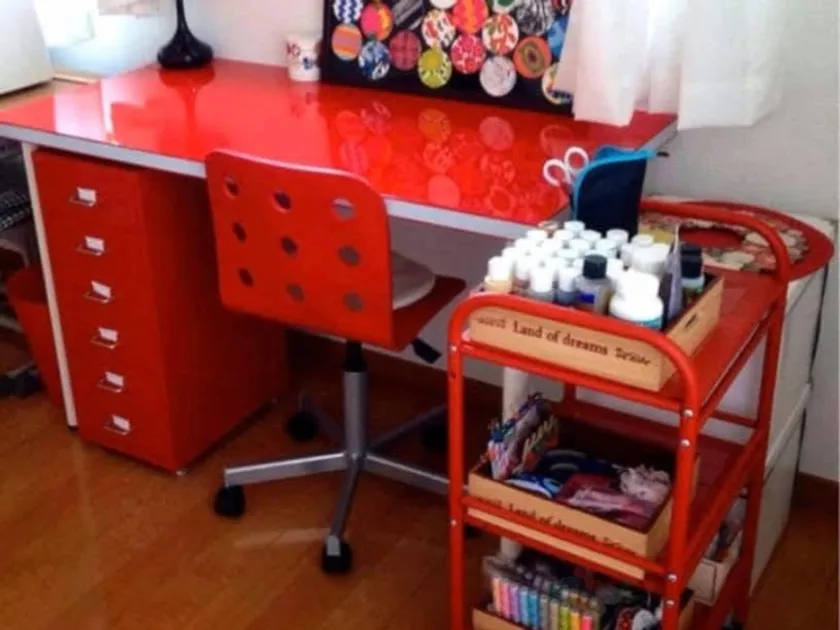
We have no money, no credit, and no connections. Still, we thought it was worth a try.
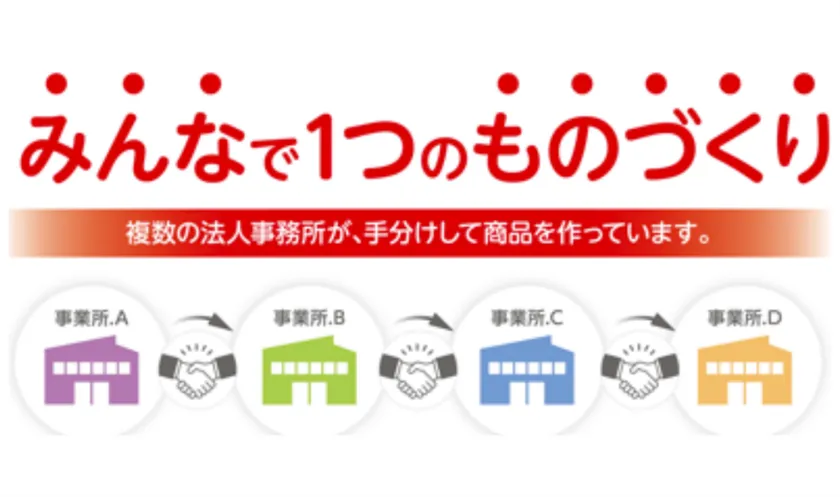
Division of labor by multiple welfare offices
■The relationship with the system
This initiative does not deny institutional support.
We understand that there are many people who have gained job satisfaction under the system, and we treat them with respect.
In addition, we are able to continue our business only because of the support of the welfare offices that are working daily within the framework of the system, lending their strength as bearers of manufacturing.
Because the system is in place, there is a foundation for safe collaboration, and the challenge is beginning to move forward as a sustainable mechanism.
On top of this, we have been asking ourselves whether there is a possibility to expand the value of welfare from outside the system, and have been searching for a system that can be sustained solely on business profits.
Our goal is for this initiative to become a new option in the field of welfare that encourages other business establishments to take up the challenge.
■ Significance behind the numbers
Having neither a factory nor public funds, we have been able to return a cumulative total of over 5 million yen to welfare offices for their work while purchasing equipment, making purchases, and reinvesting in the business from our limited sales.
These figures indicate that the business has grown through trust and collaboration with the community without relying on the system, and that the system is functioning to return earnings to society.
Although the amount of money alone may seem like a small-scale initiative, this is an important achievement that shows that people with disabilities are involved in society not as "supporters" but as "value creators.
Frankly speaking, I am also frustrated. If it had not been for Corona, we might have been able to reach this amount of money earlier. But because of that time, we learned that "what we lack can be made up for through relationships.
The figure of 5 million yen is proof that we have been able to accumulate this amount through the community and trust without relying on the system. From humble beginnings, we were able to demonstrate the potential of a sustainable welfare business model.
Based on the growth rate to date, we aim to achieve a cumulative return of 20 million yen over the next five years. Through reinvestment in product development and sales channel expansion, we will further nurture a sustainable system so that more "makers" can receive returns they can be proud of.
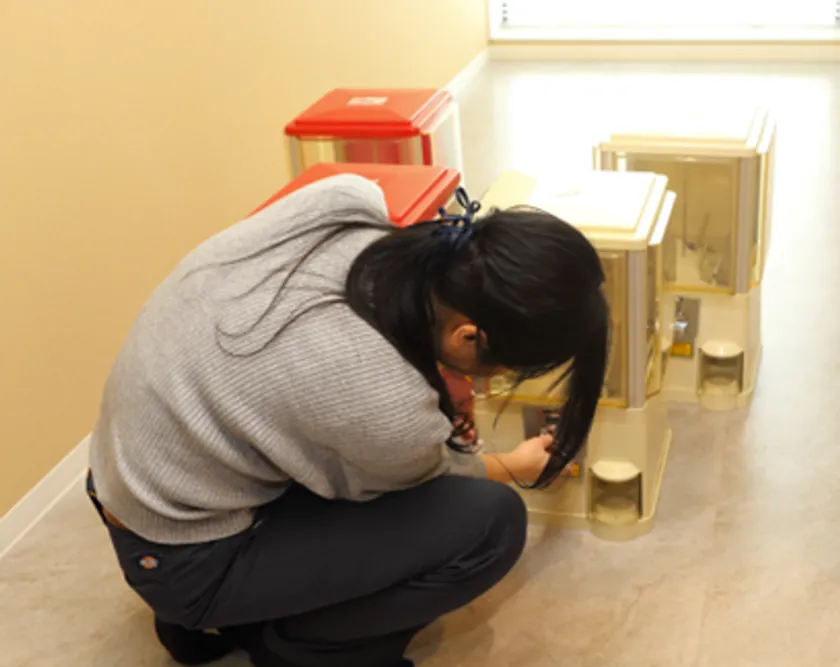
The representative's own back supporting the distribution of products
■ Achievements and Expansion
In 2021, our efforts received the prefectural governor's award in the "Chiba Entrepreneur Business Plan Competition 2020," and have since been covered by more than 30 media outlets, including newspapers, television, and radio.
Through these evaluations and media coverage, interest in the possibilities of welfare projects that do not rely on the system has grown, leading to new partnerships with local communities and businesses.
In addition, as our efforts in various regions continue to expand, we are receiving an increasing number of formal requests from government agencies and educational institutions, as well as opportunities to speak at their meetings. The social positioning of our business is gradually beginning to change, as we are attracting more and more attention as a practical example of the utilization of local resources and the SDGs beyond the boundaries of welfare.
Comments by Yoko Okudake, Representative Director
We believe that welfare products should be chosen for their quality, not their sympathy.
The reason why we launched our business without relying on public funds or subsidies is because we wanted to see with our own hands whether a business based on welfare products can be established as a sustainable business by creating value in the market and returning the profits.
We have been working to create an environment in which people with disabilities can be proud to introduce their products to the world by devoting the time and money generated by fabless management to planning and development and quality improvement.
I feel that our challenge is proving to be very rewarding. We feel that there is a lot of potential.
We believe that this return is not just wages, but proof that people with disabilities create value as members of society.
Examples of Major Initiatives in 2025
Held a year-end event at Umihotaru for three consecutive years. Celebratory chopsticks with folded paper cranes were presented to visitors.
Sold paper crane earrings at duty-free store at Narita International Airport.
Products were used as gifts in a visitor survey at an international travel expo held overseas.
・Presented as a case study of SDGs initiatives at the 2024 Matsudo SDGs Promotion Seminar hosted by Matsudo City.
Received an official order from Shibayama Town to produce wooden key chains as a commemorative gift for the 70th anniversary of the establishment of the town government.
We commercialized a capsule toy of a cultural asset of Katori City, "earthenware with a face in the shape of an incense burner," and received a great response.
Lectured at a high school affiliated with a famous university as part of an exploratory course to foster an entrepreneurial mindset.
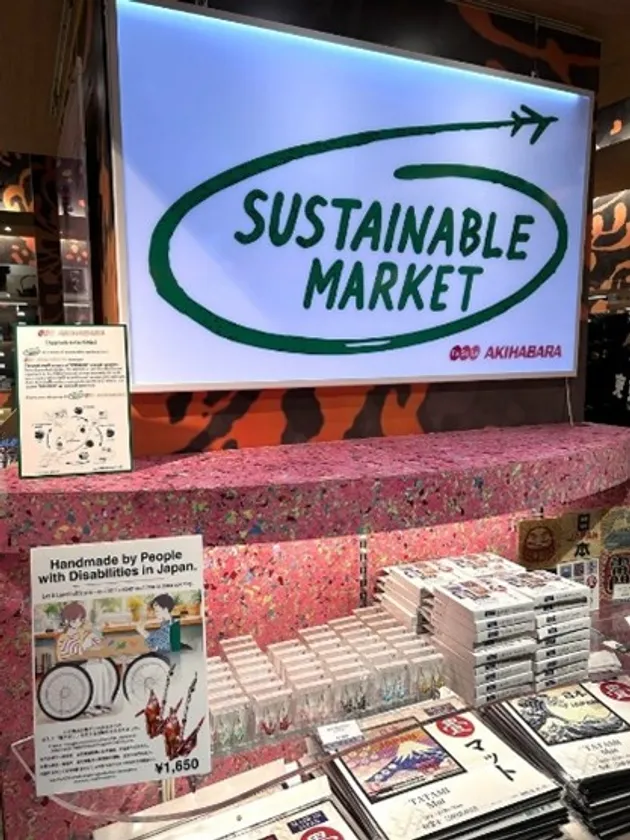
Sales at Narita Airport. Point of contact with society (image courtesy of NAA Retailing, Inc.)
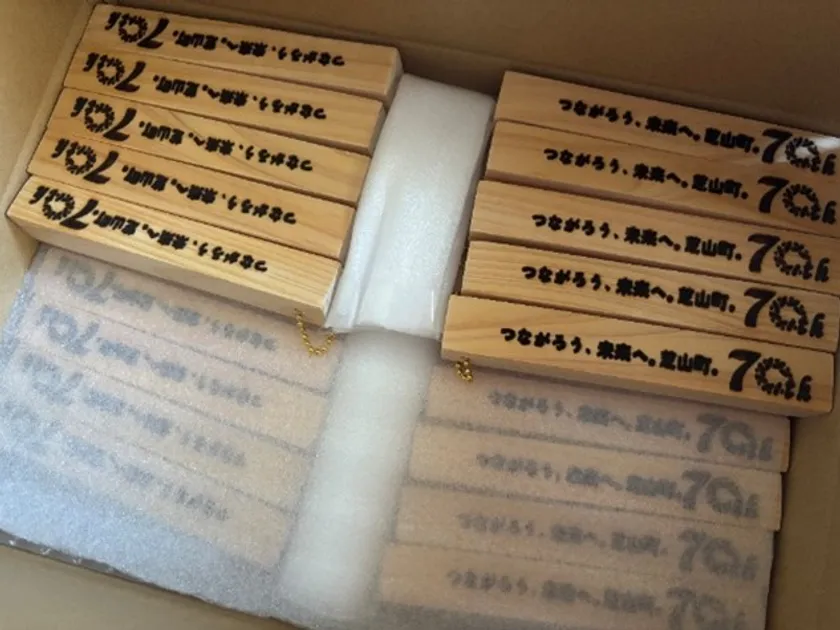
Production of commemorative products by formal order from the local community
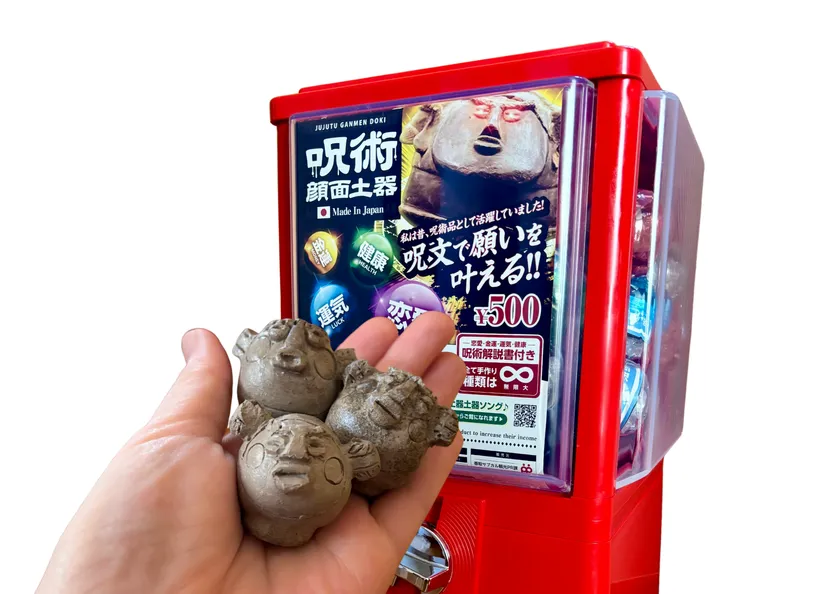
Utilization of local resources by commercializing cultural assets
Future Prospects and Questions to Society
To continue and accelerate this trend, we will continue to expand our sustainable manufacturing system and strengthen our sales channels.
Based on collaboration with the community, we hope to present new options in the field of welfare and build a future in which people involved in manufacturing are proudly connected to society.
Both inside and outside of the system have their own meanings.
As an entity that stands between the two, we continue to ask the question: "What is the value of welfare?
"What is the value of welfare?" "What is giving back?" "What is support?" and "What does it mean to get started?"
Our next challenge is to open these questions to society.
We are looking for people who can work together to build society.
We are fostering a system in which people with disabilities can participate in society as "makers" and work with pride. Through manufacturing, we have expanded opportunities for people to connect with each other and have created new value together with local communities and companies.
Currently, we welcome companies that are willing to collaborate with us in various fields such as manufacturing, distribution, public relations, and human resource development. We hope to promote collaboration in a flexible manner while finding points of contact with your company's SDGs and CSR initiatives. Please feel free to contact us.
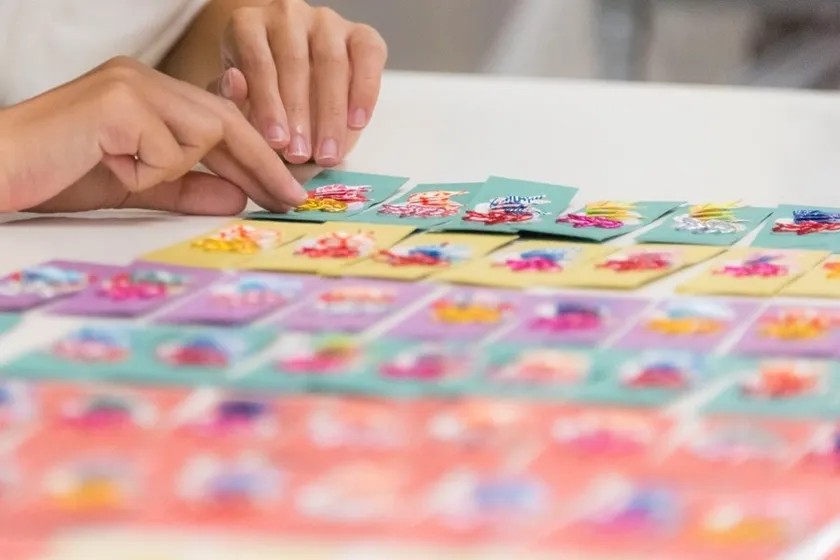
A story of co-creation that begins with a small handiwork
Outline of the corporation
Corporation Name: General Incorporated Association "P&P," Employment Support Network for Persons with Disabilities
Representative: Yoko Okudake, Representative Director
Location: 7-19-34 Masuo, Kashiwa-shi, Chiba 277-0033
Establishment : April 2020
Business description: Para-business producing business
URL : https://www.network-pp.com/
About P&P, a general incorporated association of employment support network for people with disabilities
Producing welfare production products as a "trading company of welfare for the disabled" aiming to increase wages for the disabled.
Winner of the Governor's Award at the 6th Chiba Entrepreneur Business Plan Competition (commonly known as "Chiba Busicon").

He is committed to providing "both job satisfaction and economic growth" for people with disabilities.
- Category:
- Announcements & Recruitment
- Genres:
- General Business Education Society(Japan)
